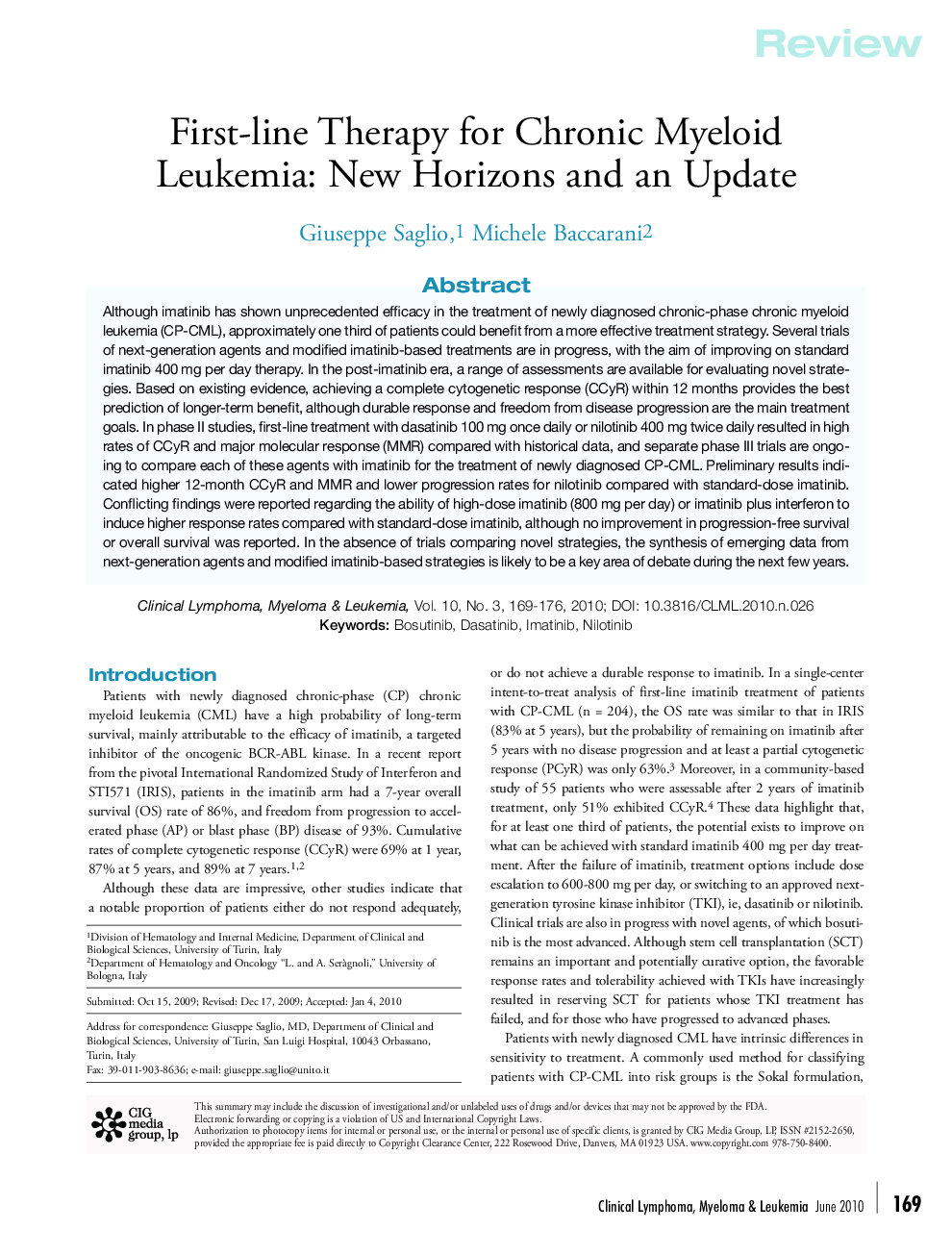| Article ID | Journal | Published Year | Pages | File Type |
|---|---|---|---|---|
| 2755433 | Clinical Lymphoma Myeloma and Leukemia | 2010 | 8 Pages |
Although imatinib has shown unprecedented efficacy in the treatment of newly diagnosed chronic-phase chronic myeloid leukemia (CP-CML), approximately one third of patients could benefit from a more effective treatment strategy. Several trials of next-generation agents and modified imatinib-based treatments are in progress, with the aim of improving on standard imatinib 400 mg per day therapy. In the post-imatinib era, a range of assessments are available for evaluating novel strategies. Based on existing evidence, achieving a complete cytogenetic response (CCyR) within 12 months provides the best prediction of longer-term benefit, although durable response and freedom from disease progression are the main treatment goals. In phase II studies, first-line treatment with dasatinib 100 mg once daily or nilotinib 400 mg twice daily resulted in high rates of CCyR and major molecular response (MMR) compared with historical data, and separate phase III trials are ongoing to compare each of these agents with imatinib for the treatment of newly diagnosed CP-CML. Preliminary results indicated higher 12-month CCyR and MMR and lower progression rates for nilotinib compared with standard-dose imatinib. Conflicting findings were reported regarding the ability of high-dose imatinib (800 mg per day) or imatinib plus interferon to induce higher response rates compared with standard-dose imatinib, although no improvement in progression-free survival or overall survival was reported. In the absence of trials comparing novel strategies, the synthesis of emerging data from next-generation agents and modified imatinib-based strategies is likely to be a key area of debate during the next few years.
